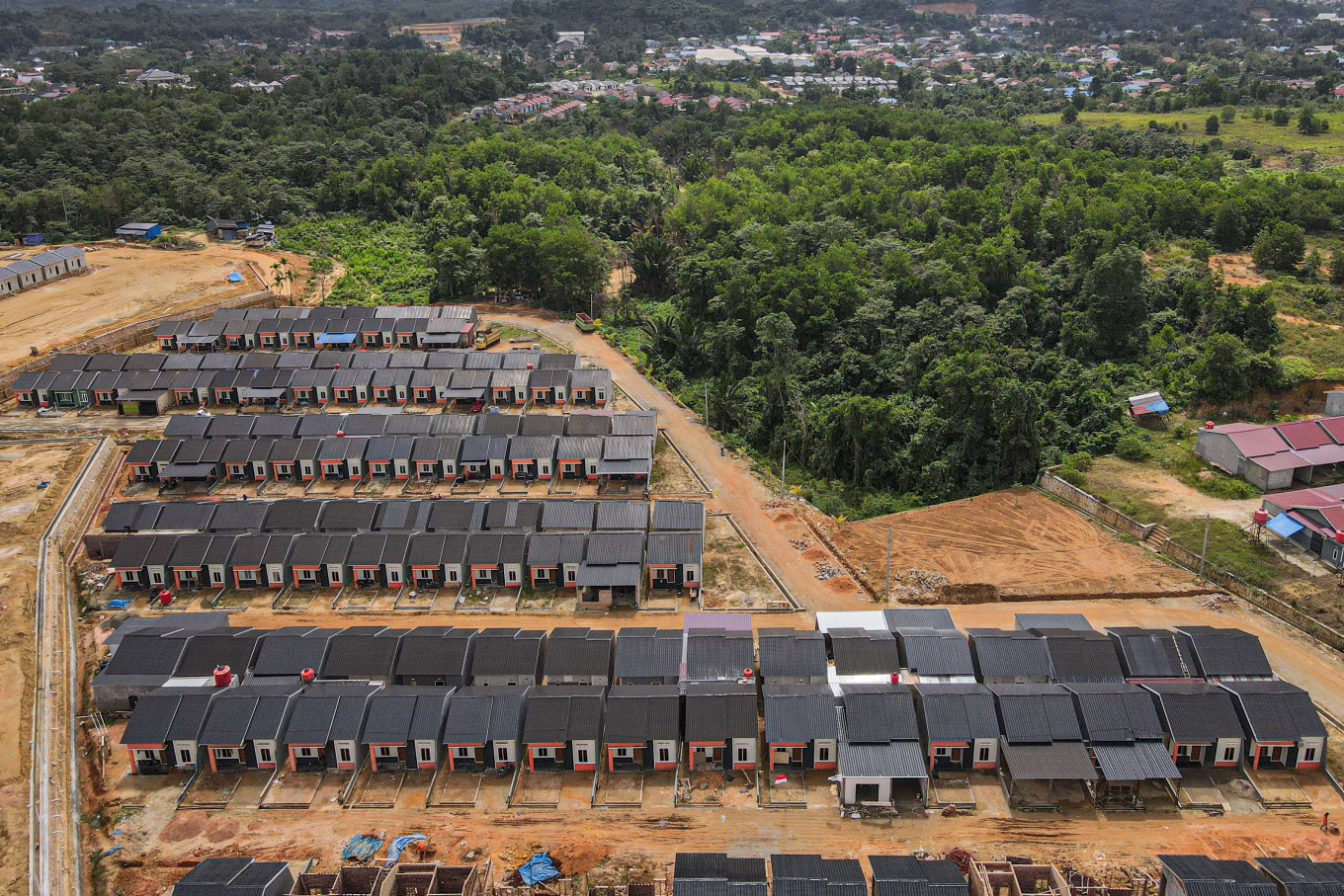Popular Reads
Top Results
Can't find what you're looking for?
View all search resultsPopular Reads
Top Results
Can't find what you're looking for?
View all search resultsBroken housing policy
The government should understand it has never been about the number and simply tripling the annual new housing target is not going to cut it.
Change text size
Gift Premium Articles
to Anyone
P
resident Prabowo Subianto’s new target to build 3 million homes a year will never solve Indonesia’s housing shortage, especially if the government does nothing to fix the broken housing market.
The previous administration had a similar program to provide at least 1 million homes annually, most of which were subsidized, to cater to low-income earners. The program started in 2015 when there was an 11.4 million gap between home ownership and demand.
Yet, the country still faced a shortage of 9.9 million units in 2023, implying the program fell short of expectations despite in theory over 8 million homes flooding the market in the past decade.
It has been reported that only between 60 and 80 percent of these new supposedly affordable housing units are occupied, implying that for whatever reason they are unsuitable. In the case of Java Island, the reasons include the housing being located in remote areas without proper public transit and inadequate infrastructure.
The government should understand it has never been about numbers and simply tripling the annual new home target is not going to cut it.
The current administration’s call for a larger private sector role is a good start, including by inviting all kinds of investors and financiers, both foreign and domestic, as the newly established Public Housing and Settlements Ministry has only been earmarked Rp 5 trillion (US$324.6 million) for its budget in 2025, far below Rp 23 trillion it actually needs.
While the government is busy with its programs, the private sector has been doing its part in increasing supply to the market in the past years.
The only problem is most of the homes it supplies are intended for middle-to-high income earners instead of their middle-to-low counterparts, with private developers citing profitability reasons.
The Institute for Economic and Social Research (LPEM) at the University of Indonesia (UI) said in its report in June that the housing market for middle-to-high income earners has an oversupply.
Meanwhile, average prices of homes in major cities, including Medan, Surabaya and Jakarta, are estimated to be equivalent to 20 times the average annual income of individuals in their respective cities, also according to UI’s LPEM.
While many of these houses are currently for sale, only few people can actually afford them. It is not surprising that in many parts of Greater Jakarta, more of these end up being purchased as an investment rather than falling into hands of those who actually need them.
To clear up this mess, it would need more than a balancing and sharing of roles between the state and the private sector.
President Prabowo Subianto’s administration could start with seriously enforcing regulations on “balanced housing” that stipulates that for every “luxury” home constructed in any particular city or regency there should be two to three medium to small houses built in the same area.
The policy has been enacted since late 1990s and has been revised multiple times, yet the implementation remains poor with developers often blaming rising construction and land costs.
These are problems the government needs to address, including by incentives and financial support.
Moreover, Prabowo’s administration should not overlook the urgent need for public transit, discussions on which have been largely absent from the Public Housing and Settlements Ministry and even from Hashim S. Djojohadikusumo, Prabowo’s brother and head of the President’s housing task force.
Housing should not exclude residents from proper access to economic centers. If housing cannot be free, then at least ensure that those who need it can still earn enough to pay to own their homes.
Putting a roof over people’s heads is a core government responsibility. While the role of private entities is essential, the government should not overlook the imbalance in the property market.
It is not wrong to aim for growth in the property sector or having it play a significant role in boosting the country’s GDP, but people need to be able to afford a proper home.











